Why I Do Not Make Photographs
(Anymore)
I used to take in everything with my camera. Endlessly, obsessively. I saw pictures everywhere. “I remember when it was like that,” Larry said, “enjoy it because it won’t last.”
I began making lists of the things so that I wouldn’t forget... the hue of his eyes after a day at the beach; lying beneath the giant trees, the sun projecting triangles on my arm;
the distant ding of a bicycle bell, another moment lost.
Waiting for the bus on a cold, gray Greenpoint day, I was searching for one that I remembered falling asleep the night before, too tired to write down but sure that I wouldn’t need to. Something precious misplaced. My mom once asked her shrink what she would do when she stopped seeing him. How would she remember everything. “You don’t need to, they are already part of you.”
I have been dreaming every night for months. Sometimes I write them down as quickly as I can and sometimes I let them slip away forever. Something stays with me anyway, that which I don’t let myself keep (as if they are objects, as if they take up too much space). I sold his things and gave the rest away. A light to burn is all that's left. What am I supposed to do with that?
I sent a package to Nina, some little things that I thought she would like to have. I crammed them in a cardboard box with bubble wrap and scotch tape. A few days later she left a message on my voice mail, “I was shocked… I thought it was from him. You do things just as he would have. Right down to how you placed the stamp.”
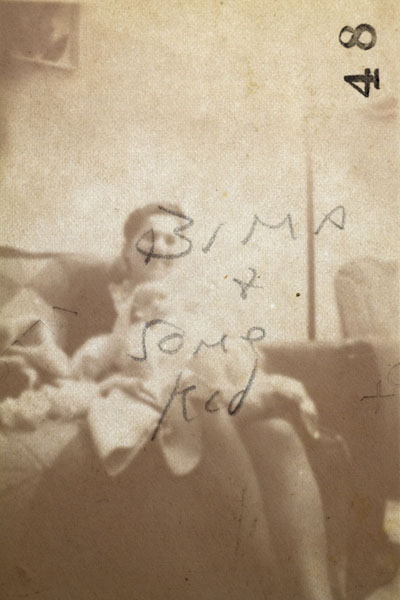
Selling My Car, Old Habits Die Hard
(I spent a few weeks agonizing about how to store my car, to save it for later. Sorting through cobwebs, plastic shopping bags, leaves and junk to make space in a garage that looked like it was about to collapse from exhaustion, researching natural alternatives to mothballs and ways to keep mice from chewing my wires (peppermint oil), recurrent nightmares about spiders giving birth to millions of babies inside my carberater, only to decide, the day before I left, to sell it after all; realizing that I would not return.)
I am writing this with a well-worn pen that says “I love Albuquerque” on its side with pink hearts all over the cap and so I thought it might be good to start by remembering. I called my mom. She told me the one about how little me at age three insisted on dressing myself for story hour at the library. From a great big garbage bag filled with hand-me-downs from my cousins in Toronto, I chose a silky yellow and pink swirled slip and white patent leather party shoes that were five sizes too big. It was the middle of winter but I wouldn't budge, so she bundled me up in my rabbit's fur coat and bright red mittens and off we went. "You always had a strong sense of yourself, of what made sense and what did not."
I am from Rochester, NY where the winters are long and there are weeks without sun. As a child, I was keenly aware of the changing seasons, often viewing the world through windows. Child-like wonder laced with melancholy. The sense of being on the inside looking out, not quite a part of the world, has never left me.
Now I live in New York City. Sometimes I wake up early. Sometimes I sleep in. Sometimes it is already recess, lots of little kids screaming. Joyful shrieks bounce off buildings twisting and turning as they make their way into my little room, morphing into desperate cries for help. It will be autumn soon, but the city trees all look the same to me. I get lost deliberately. Scouting the streets, looking for anything that resembles familiarity. I am distracted by little catastrophes along the way. Ice cream slithers out of place. Shiny wrappers catch the light. On the subway, I watch people and imagine their stories. It is usually packed so they have to stand, closing their eyes, swaying with the car. At night I can see into the apartment building across the way. Fluorescent blues and greens, dinner tables, empty rooms… I feel invisible.
There is a man who lives on the steps of a church on the way to the subway. He reads the paper as the sun comes up, sipping coffee from a Styrofoam cup. He asks for nothing, disappears all day. Submerged again in blankets after dark (they get thicker and thicker). I put on a coat to go out now; this is how I mark the passage of time.
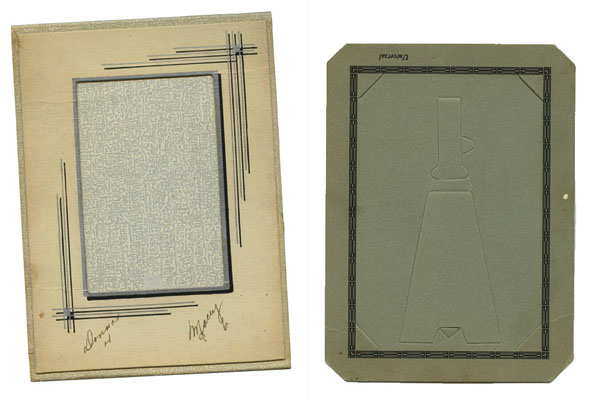
A Persistent Feeling that There is Something Crucial Waiting to be Found (Lesson from Stephen Shore and Tim Davis)
A project is over when the questions stop. Even if it looks resolved, there should always be a question being asked otherwise you will not be moved to a different place. I found two rolls of color slide film that I figured should get used up sooner than later. I went out just to see what would happen. There was something about them that I could not name. We held them up to the window. It is not the aesthetic of a snapshot that charms me, it is the authenticity of a raw, unmediated moment.
“Why is it that to document, to create a straight equivalent, and to engage the formal properties of a camera is separated from the lyrical image that is interested in psychological space and transcendence?” His 8x10 view camera, with its precise detail, depicts what the world looks like with heightened awareness. This is what it looks like to look. This is a moment of attention, recognition of the potential to communicate, that might otherwise pass by. I see devotion, an almost spiritual faith in the nature of photography to convey personal experience.”
I used to get bored at temple. I would sit in his big chair and draw pictures amidst the ancient melodies (piped in through speakers). He left little things for me to find. I pulled open the top right drawer with glee. I left him notes and wishes, sliding them beneath the glass.
Now this is what it looks like to look at me (dismantling history). Frenetic. Proving my piety. His desk secretes secrets. With each discovery, my delight seems perverse. I hold each object and read each letter as if it will explain what has happened. As if there is no cruelty to the notion that things continue amidst all this. Out the window it is still snowing and I try to make something out of nothing. Arranging a pile of stones, erecting a monument. I search for something, one thing that bears his essence and sustains our connection.
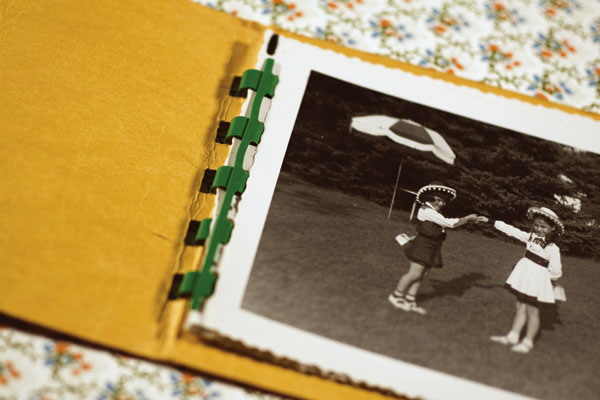
In 2005, He Was Still Making Pancakes
“One can never truly return to original home of childhood, since it exists mostly as a place in the imagination. Although the meaning of nostalgia itself has changed over time, essentially it has come to signify not simply the loss of one’s childhood home but the loss of childhood itself.” –Roberta Rubenstein
By 2005, I had already moved back to Rochester with my 20-year-old Siamese cat. Everything was within five minutes of everything else, but I still seemed to be rushing around.
My computer crashed one day right before class, I was totally amazed to find myself fudging it as if I’d done this a million times.
I had fallen for an upright bass player with pretty blue eyes who wore overalls and called me “pretty girl”. We hiked through the woods and stumbled upon a deer dead by the spot where we swam all summer, where we imagined the autumn leaves at their peak.
I turned 28 and Saturn returned. The stars were aligned exactly as they had been when I was born. Everything on the cusp of change.
I used to go over to my dad’s house to take naps. I slept like a baby with the same comforter that my mom had sewn in 1980 when I was still a baby.
“See ya later.” I never could have known that I was to stand in the threshold of that room a year or two later not knowing how to say goodbye.
If I stuck around, he made me pancakes for dinner. If I asked him to, he would spell out my name in batter or make me a giant pancake that required two spatulas to flip.
His recipe had evolved over the years. Hearty whole wheat flour; A dab of cottage cheese for protein; Walnuts and flax seeds (god for your heart) in the batter; organic berries; Stoneyfield vanilla yogurt and maple syrup on top.
One day, dreading a trip to the super market where he might be cornered into conversation by pesky congregants, he flipped over the empty box and realized that he had all the ingredients on the list. The experiments began.
Now, in 2008, it seems odd for someone who spent so many of my formative years eating terrible tasting pancakes, forcing a smile… “really good, definitely better than last time,” to be so nostalgic about them.
I remember finding the index card on the desk, “Dear Dad,” it said, “I love you so much. I don’t know what I’d do without you.” My inexperienced hand pressed hard on the pencil; the ill formed letters winding in between shiny gold star stickers.
I decided not to celebrate thanksgiving that year. I could not do it without him. I made myself pancakes instead.
I thought about the cooking show that I made for Communications class in fifth grade. I thought about discovering Martha Rosler and Patty Chang during my internship at the Electronic Arts Intermix that chilly January, during which I also discovered the winter wind tunnels in Chelsea.
Then I ate my words. All of them, covered in maple syrup. A slight quiver, my hand resting on the table.
In 2008 I write, “The process of making pancakes, a futile attempt to relive a childhood memory that is imbued with nostalgia and sentimentality, translates into a sincere gesture as it oscillates between hilarity and sadness. Part document and part performance, the camera itself shifts between objective distance and subjective presence and explores the solitude of the artistic process and the way one negotiates the past and often tries to hold onto or pay tribute to that which has been lost.” I wonder if that sounds like bullshit.
In 2005, the lilac tree outside the kitchen window still bloomed. By 2008, it had stopped. I was not there to see it anyway.
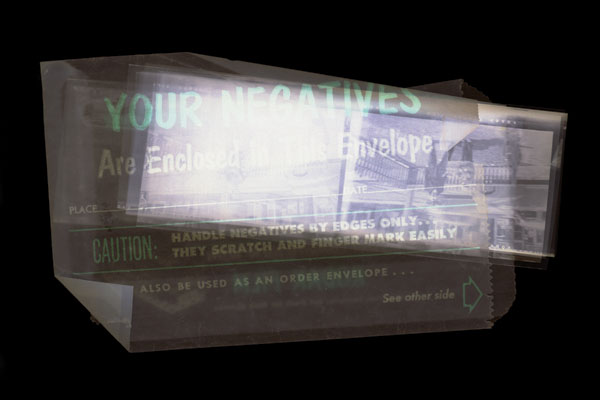
Bima
I spent a week with my grandmother. I sat with her on the porch every morning drinking burnt coffee and watching the birds who live in the Asian maple tree. Half blind, she listens to them sing and tells me the same stories all over again. I feel very close to her, in synch. “The tree is dying because there are too many of them,” she says. She goes inside with a sigh; the lawn is littered with saltines. I eavesdrop through the screen, she is talking to ghosts again and it occurs to me that time passes too quickly, we fall in an out of love, there is failure, there is glory and everything in between, but we all end up frail like our grandmothers, alone in the end.

Watching People Watching Puppies
“I tried to find a kind of radiance in dailiness. Sometimes this radiance can be almost frightening. Other times it can be almost holy or sacred.... This extraordinary wonder of things is somehow related to the extraordinary dread, to the death fear we try to keep beneath the surface of our perceptions."
-Don Delillo
I am documenting a moment of recognition. A crowd is gathered around a glass display on a sunny autumn day, strangers happily chatting about the personalities of the puppies. The pug with droopy eyes licks the window in slow motion. The really cute brown hot-dog dog chews on shredded newspaper, pouncing on its paper prey. The city passes by in reflections, windows coated with grit and grime. “They’re trapped in a cage… for a whole day.” The boy is the only one that speaks the truth, though beyond his comprehension to really understands the cruelty of the situation. The mother is uncomfortable now (perhaps recalling Inside Edition’s recent puppy mill expose). The people walk away, the recess bell rings and all is forgotten. The moment gone, only the desperate, caged puppies remain on display for a new crowd soon to gather.
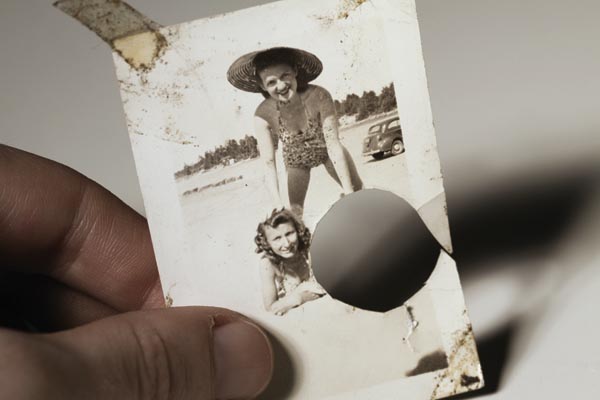
I went to see Jeff Wall, but left with Anri:
Memory is a funny thing. I can easily to romanticize the past. And (re)make pretty pictures of that. What of it when it becomes infiltrated by trauma or loss?
There is a sense of intimacy inherent in the act of watching him shave; yet I am balancing on the edge of a tile. I am looking up at the LCD screen, trying to steady the (broken) arm of a spring-loaded clamp lamp. A clinical investigation. Interrogation. Every detail and every pore. As the light shifts the auto focus becomes indecisive. His movements, mechanical at times (he’s done this a million times), mimic the machine as it stares and records. Except for a slight glance, he does not acknowledge my camera. Subtle details are amplified, facial expressions and gestures. He moves in and out of the frame. There is a light switch. The camera is close but nothing is really revealed. The noise sounds familiar (is that water or the wind?), but cannot be located definitively. The ambiguity of the physical act (shaving) looks like something at first, then shifts, and shifts again.
Feeling underdressed and awkward at Jeff Walls opening, I pass the enormous light boxes, into the dark back rooms. I find Anri Sala standing there. “To touch the world, you have to float free from your established ways of experiencing it,” he whisphers so that only I can hear. One long, continuous, beautiful shot almost broken, it seems, by the ring of church bells in the distance. But he keeps playing, the man with the venerable dread locks, improvising on the ledge. He looks into my eyes, “I am interested in sounds as they become music in your ear.” I think I have a crush.
I remember going into the hospital room, silent except for the rhythm of the machines breathing for him. She did not prepare me. (“get on a plane right now,” perhaps I should have known). I would not look away, for despite knowing that there are things I can no longer have, I still put out my hand.
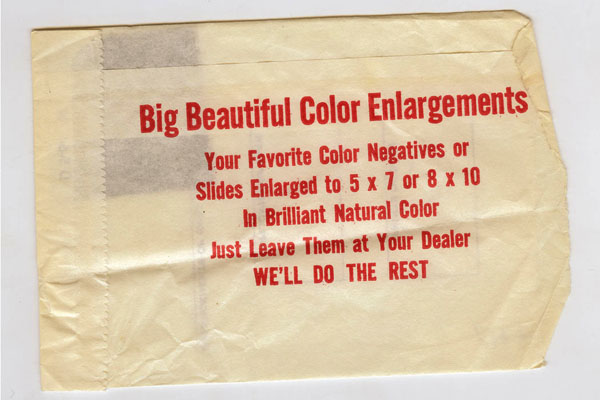
Electromagnetic Radiation
“The melancholic is a peculiar person who has an object of desire but lost the desire itself. That is to say, he lost that which makes him desire the desired object: the object-cause-of-your-desire, which is never the desired object.” -philippe parreno & rirkrit tiravanija
I noticed his eyes were closed as I eventually stopped talking. A few moments later, he said “its like we’re still having a conversation, but I’m not talking.” I picture his face many years younger…. Everything was green and lush. The trail got steeper and steeper until the bike was gone and I was flying. I hovered above the sidewalk until I saw him approach. He turned away as if he did not know me. It was a younger version,perhaps one that I may have seen in a photograph taken before I was born. Now I pass objects through an x-ray machine. Interrogating each item to find out what it means (nothing). I let them pass through to the other end where they crash to the floor. I am acting out this loss over and over again.
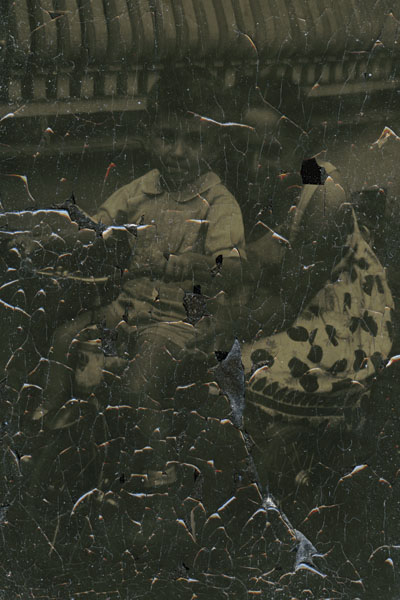
Screen Memory
“Freud defines the value of screen memories to reside not in the content of the memory itself, but the relation of that content to what has been forgotten. In this he implies the notion that what is forgotten is more important than what is remembered” –Teresa Christiansen
He used to play home movies for us on Saturday nights when we were little. Babies in the sink and big wheels… Now I am here, watching him fiddle with the projector as he watches the footage of my brother driving. I don’t just watch though… I give instructions. I tell him what to do. I tell him how to watch. The drive to the cemetery would have been silent but for the super 8. My stare mediated by the machine, my voice a constant hum desperately trying to communicate something (anything). Things keep breaking in the dark. Bulbs keep blowing, exploding in an instant and then it is dark. I long for things that are gone or ruined. I try to move what is still. And I watch… confronting, contemplating, longing. My looking always unfulfilled.
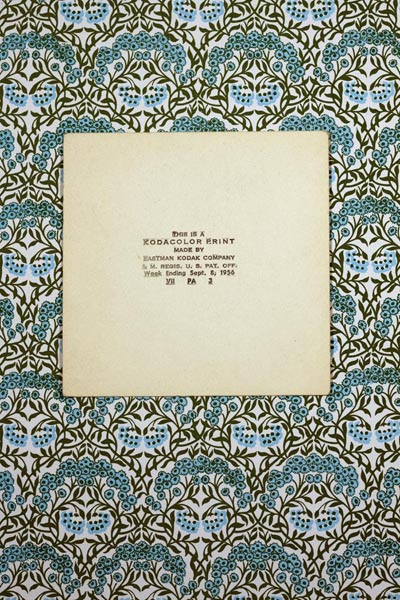
A Lexicon: for I Do Without You
Three women’s voices mingle and collide, echoing the visual swarm (of boxes) outside. As I follow each trail of words to its source, boxes overflowing with packing paper placed in a corner, each becomes more comprehensible. The women are fortunetellers. Predicting the future, though, seems to consist of revisiting the past and offering reassurance of one’s present. “You are on the right path.”
Wearing a wig and dressed as I remember her circa 1980, she greets my friends (most of whom she has never met) and serves pancakes on really cute animal party plates (my favorite is the panda) with pink napkins, my name embossed in silver script, left over from my bat mitzvah. She stands in a kitchen made from cardboard boxes. It looks as though a child has drawn the appliances on with a thick, black marker. They only reach as high as her waist. There is a cardboard cat on the floor. He would meow if he could. There are blue crayon water droplets beneath the faucet and some kind of meat in an aluminum tray inside the oven. There is a cardboard window hanging above the sink with painted apple trees, grass, brighth blue sky, and the sun (primary colors only). There are snapshots and alphabet magnets drawn on the fridge (though the crayon sometimes meanders outside of the lines) and a cardboard cookie jar on top. There is a children’s record playing in the background.
She is supposed to be making the pancakes in the shape of “ME,” but every time I walk over, I see simple circles on the griddle. She tells me she cannot do it properly. Apparently they just won’t flip and she has given up. “Yes you can,” I encourage her and show her how. After a while, I just tell her that she has to do what I say. “I am forcing you to be my mother and you have to make ME ME ME ME ME!” I invited my Mother into to the part of my life that I keep most secret, perhaps afraid of what she will see, of what she cannot understand.
Mother:
To create and produce in order to communicate; to exchange information. To empathize and to continue (to exist).
To acknowledge oneself the author of; assume as one's own. A mother bird. Bound to the earth, always in her dreams, I grieve.
To care for, watch over, protect, nourish. I put her behind a red velvet rope, spelling things in pancake batter. A projection of a ghost, a trace, a flickering super 8. I convince myself that he is still there, looking through the lens. I smile and wave.
A glass door, the entrance to the exhibition space, is covered in newspaper and though it is impossible to see what is going on inside, the lights are definitely on. Upon opening the door boxes, somewhat precariously stacked from floor to ceiling, bombard me. The overwhelming stacks go on and on, lining the walls on both sides, further constricting the already narrow hallway.
There is a large tower in the middle of the main gallery. It consists of seven cube boxes of varying size (the largest, 30 inches square, on the floor and the smallest, eight inches, touching the ceiling). The boxes are new and unmarked, unlike the worn boxes of varying size and shape outside). Windows are cut in the boxes revealing the videos within. I have to walk around the tower to see them all. There are also boxes on the floor that I stand on. The videos that seemed cruel (out of reach), at first, become accessible.
Nayland once said that in order to make someone feel loss you have to give them something and then take it away. The room in noticeably sparse and controlled compared to the space outside. The lights are dim, illuminating the rear wall. It is empty except for a bit of old wire, nails pushed flush to the wall, small holes, and a row of faint rectangles, traces of what was once there.
Moving:
Stirring or evoking strong feelings or emotions; having an effect on somebody or something. A desire to be heard (like an impatient child). I make the things I do because I have to. The real labor comes later. Do my intentions translate (constant questioning)?
Changing the location of possessions. Questioning values, deciding what is worth keeping. To move, to sell or to be sold (because there is not enough room for all this stuff that I can’t bear to give up). Finding a way to release the rest. Move in, take aggressive steps to control or possess (that which feels wild and cannot be held). Move out, leaving a place in order to start over with empty walls to be filled.
Box:
A container, case, or receptacle, often with a lid or removable cover, made of cardboard, plastic, wood, foil, or other material in which goods are packed for sale, storage, or transportation. Stackable, collapsible, moveable, transient. Though usually rectangular, square boxes are best to package cylindrical, round or odd shaped objects.
Box within a box. Matryoshka nesting dolls (see above: mother).
Television. Talking box. Memories contained, preserved within a frame. Think outside the box. Learning to let my mind meander in silence.
A gift or present. The objects that I take are carefully placed inside, but they are not supposed to be mine (yet). I will put them in a dark basement corner for later. I label each box, an attempt at organization. The itemized lists become jumbled sharpie phrases that only I can decipher. “Little, funny things that I’ll be happy to find in time.”
To enclose or confine. An area in a public place that has been sectioned off for the accommodation (or management) of a small number of people. Overwhelmed by boxes piled high, on the verge of tipping. They navigate my clutter. The mounds and piles, monuments to the absent ones.
A coffin. A simple pine box.